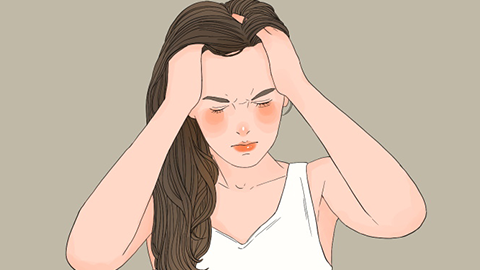What are the main causes of post-stroke depression?
Generally, post-stroke depression may be caused by factors such as neuroendocrine dysfunction, psychological adjustment disorders, drug side effects, abnormal cerebral blood perfusion, and neuroinflammatory responses. If discomfort symptoms occur, timely consultation and treatment at a regular hospital are recommended. Detailed analysis is as follows:
1. Neuroendocrine Dysfunction
Stroke can affect the function of the hypothalamic-pituitary-adrenal axis, leading to abnormal secretion of hormones such as cortisol, which may trigger depressive emotions. Daily regulation of endocrine rhythms through consistent sleep-wake schedules, such as fixed sleeping and waking times, can help.
2. Psychological Adjustment Disorders
After a stroke, patients may experience sequelae such as limited limb mobility and language dysfunction. Difficulty accepting these physical changes can lead to negative emotions such as self-denial and helplessness, resulting in depression. Family members should patiently accompany the patient, encourage participation in rehabilitation training, and record every small progress to enhance confidence.

3. Drug Side Effects
Some stroke patients need long-term use of antihypertensive drugs, antiplatelet drugs, etc., which might affect neurotransmitter metabolism and induce depressive emotions. If symptoms such as low mood occur after taking medication, inform the doctor promptly and adjust medication under medical guidance.
4. Abnormal Cerebral Perfusion
Stroke causes reduced local blood flow in the brain, leading to insufficient blood supply to brain regions responsible for emotional regulation, impairing emotional control functions, and triggering depression. Under medical guidance, medications that improve cerebral circulation can be used, such as Ginkgo biloba extract tablets, Nimodipine tablets, Betahistine tablets, etc.
5. Neuroinflammatory Response
Inflammatory responses occur in the brain after stroke, where inflammatory factors stimulate nerve cells, interfere with emotional regulation pathways, and increase the risk of depression. Anti-inflammatory drugs should be used under medical guidance, such as enteric-coated aspirin tablets, ibuprofen tablets, diclofenac sodium sustained-release tablets, etc.
In daily life, maintaining a light diet and consuming more fresh vegetables, fruits, and whole grains is recommended. Engage in rehabilitation exercises according to individual conditions, such as limb massage and language training, to gradually restore physical function and improve psychological well-being.








